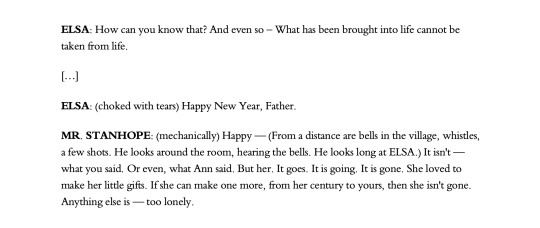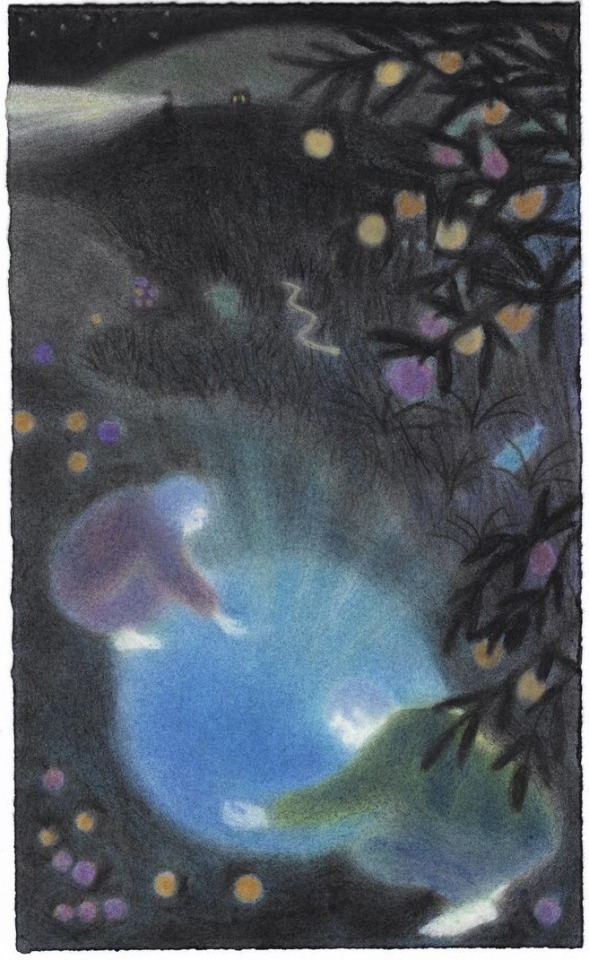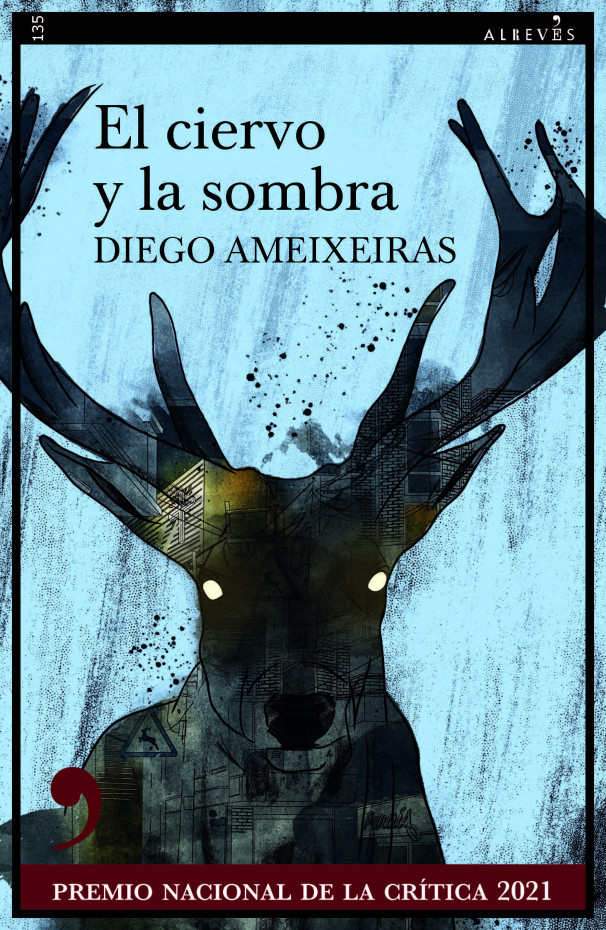#Susan Glaspell
Explore tagged Tumblr posts
Text
They had come at last to Z.

6729 . caught unawares, entryway light (inv) . 20240829
no connection to recent reading, Susan Glaspell her “From A to Z,” in Lifted Masks : Stories (1912) : link first appeared (with an unfortunate, tendentious subtitle) in The American Magazine 68:6 (October 1909) : 543-553 : link
15 notes
·
View notes
Text
Listen I’m enjoying East of Eden for all the Biblical allusion and its meditation on trauma, grief, and the impact trauma has on communities
But I think Steinbeck’s misogyny and racism is so overwhelming that it’s almost impossible to take his other comments on society seriously
Because if he’s so blind to his own internal prejudice- how much can I possibly trust his judgment on biblical interpretation and the truth of American community consciousness during the 19th-20th century?
Anyway, for commentary on the life in the American West, and the impact war, famine, and diversity had on creating the collective identity of the American people, during the 19th and 20th centuries, seek authors like:
Gertrude Stein, Willa Cather, Edith Warton, Zora Neel Hurston, Rebecca Harding Davis, Alice Walker, Susan Glaspell, Marianne Moore, Sandra Cisneros, Elizabeth Cook-Lynn, Joy Harjo, N. Scott Momaday, Lanston Hughes,
(and SO MANY MORE)
All of these authors deal with the subjects (to various degrees) of class vs individualism, American emergent Identity issues, industrialism, tradition vs modernism, and multiculturalism in the West in ways that are much more nuanced than anything Steinbeck ever wrote.
Some of them wrote with clear Christian overtones- some with indigenous religiosity and recrimination of internalize colonialist attitude existing within pop-christian thought, and some of them are pure modernist empiricists. And I love the diversity of thought extant within these works- much more interesting than painting with broad generalization and assuming all of American history to revolve around the same conceptual points modern evangelist's decree.
We are a nation built on diversity- of people, of thought, and of place. I'll accept no other definition of what it means to be USamerican.
At this point, I'm pretty sure Steinbeck was just projecting his own hatred of women, and processing his divorce, throughout the entirety of East of Eden- like the book gets so close to interesting biblical allusion overlay onto familial interdependent dynamic and mediation on the nature of evil - but then his work devolves into racism and misogyny diminishing the impact of these really interesting themes.
BOOO!
Why do I have to read this. I hate the so-called Literary Canon.
So sick of the fact that I have to read the work of every white American man ever- for the purpose of my degree program's culminative exam- yet many of the women authors, indigenous authors, or multiethnic authors will not be on my exam.
IDK bro- I'm feeling a type of way about it today.
#linguistics#literary aesthetics#literary analysis#literary criticism#literary theory#american literature#classic literature#literature#American identity#nineteenth century#twentieth century#john steinbeck#east of eden#gertrude stein#willa cather#edith warton#zora neale hurston#rebecca harding davis#alice walker#susan glaspell#marianne moore#sandra cisneros#elizabeth cook lynn#joy harjo#n scott momaday#langston hughes#diversity#multiculturalism#multi ethnic us literature#us literature
9 notes
·
View notes
Photo









Ovid, Metamorphoses XV, 165 // Susan Glaspell, Alison’s House // Paintings by Mary Herbert // Jenny Xie, excerpt from “Postmemory” // The Day the Earth Stood Still (2008) // Laura Gilpin, “Life After Death”
#web weaving#parallels#ovid#metamorphoses#susan glaspell#alison's house#jenny xie#postmemory#the day the earth stood still#laura gilpin#life after death#the hocus pocus of the universe#mary herbert#obsessed with the fact that everything changes but nothing is ever truly lost.#webweaving
75 notes
·
View notes
Text
We all go through the same things - it's just a different kind of the same thing.
- Susan Glaspell, A Jury of Her Peers
3 notes
·
View notes
Text
Tues. Feb. 20, 2024: Tick Tock, On the Clock
image courtesy of Alexa via pixabay.com Tuesday, Feb. 20, 2024 Waxing Moon Partly cloudy and cold I hope you had a great weekend. Today’s serial episode is from Legerdemain. Episode 165: The Corpse Talker and the Fake Singer Corpse Talker Ren Foster pushes his limits to get Shelley answers. And then there’s that mechanical eyeball flying around. Legerdemain Serial Link Legerdemain…

View On WordPress
#cooking#Deadly Dramatics#Dreams#errands#grant#Legerdemain#reading#REP#script coveerage#snow#Susan Glaspell#THE LIGHTHOUSE LADY#THE VICIOUS CRITIC#voting#Yoga
0 notes
Text
up word the trees had come; new combinations. no puttering tomorrow.
“Am puttering to-day. Now three o’clock. Start things and don’t finish ’em. It’s sultry. I have spring fever. After supper Bowers the station agent sent up word the trees had come. Fred and I brought them up in a handcart. No puttering to-morrow.”
ex Susan Glaspell. The Road to the Temple (1926, 1927)
U.S. edition (1927) : 125 Stanford copy/scan (via google books) : link U California copy/scan (via hathitrust) : link
UK edition — different printing, (nicer) typesetting — (1926) : 95 University of Illinois at Urbana-Champaign copy/scan (via hathitrust) catalog note : Biography of George Cram Cook, written by his wife. Part biography, part autobiography. link
—
George Cram Cook (1873-1924), playwright, novelist, theater producer, agriculturalist, &c., &c. wikipedia : link
rather more, at 364
0 notes
Text
Editing my lines from act 3 of Bernice! Margaret is going through a Rollercoaster of emotion yall
0 notes
Text
Lecturas de abril. Primera semana
El ciervo y la sombra / Diego Ameixeiras. Editorial Alrevés, 2022 Mateo, el protagonista de esta vibrante y conmovedora novela de Diego Ameixeiras, intenta salir adelante vendiendo cocaína y dejándose llevar por los extraños negocios que le ofrece Silvio, su mejor cliente y viejo amigo con el que se siente en deuda. Al mismo tiempo, mientras se esfuerza en superar la muerte de sus padres en un…

View On WordPress
#Aki Shimazaki#anarquistas#Azami#Beirut#club#Diego Ameixeiras#familia#Familia Pelletier#Indochina#Insignificancias#Irene#Mateo#orfandad#París#pasión#Pierre Lemaitre#Sara Morante#sexismo#sororidad#Susan Glaspell#teatro#violencia doméstica
1 note
·
View note
Text
had to read trifles for school shit
she 100% killed him
he was probably abusive
he killed her fucking bird
2 notes
·
View notes
Text
30K notes
·
View notes
Text
no one asked, but here are my thoughts on the short stories in that poll, because i re-read all of them:
the lottery by shirley jackson - a classic. brutal and effective.
lamb to the slaughter by roald dahl - a satisfying little story just like a nice supper. i didn't find it super creepy, even though the act of e***** the m***** w***** is pretty creepy in itself. love roald dahl, not his best work.
the veldt by ray bradbury - the screams! i love the almost dark willy wonka-esque conflict, with this magical machine that has terrible consequences if misused (and the game is a bit rigged.) love how timeless it is.
the yellow wallpaper by charlotte perkins gilman - classic for a reason. it's incredible how the writing makes you feel sick, as if you too are stuck in this hideous yellow wallpaper.
the monsters are due on maple street by rod serling - i don't want to spoil it for anyone who hasn't seen or read it (also, is this even a "short story"? all i found was the episode and a script) but i love how this and the veldt describe the thin line between civilization and barbarity.
a jury of her peers by susan glaspell - probably my favorite of this particular set of stories. the small details, the shared glances between women. the way mrs. hale asks, "why do we know--what we know? and they don't?"... is there any stronger question to ask about misogyny?
where are you going, where have you been by joyce carol oates - unbelievably creepy, made my blood run cold when i read it. oates is a master at eerie understatement. it's like you can feel something terrible is going to happen long before it happens, and you are stuck between wanting to save her, and wanting it to be over with.
the cask of amontillado by edgar allen poe - other poe stories are creepier, but i DID enjoy the background where this was a response to a literary rival. also, the imagery of his coat of arms! this made me miss english class.
i have no mouth and i must scream by harlan ellison - okay, obviously creepy and unsettling as hell. i always thought the writing, from the narrator's pov, felt a little too "normal" considering everything that has happened to them. also hate how ellen is described. but a very good, extremely creepy story regardless. also an interesting old video game to watch on youtube.
in the penal colony by franz kafka - i hadn't read this one before, and it's funny, i saw the ending coming but in an entirely different way. the religious allegory felt obvious, but i'm still chewing on it.
the jaunt by stephen king - this has inspired many a classic creepypasta. i love how king can just reel you in and bounces back and forth between present and past, in dialogue and in narration. and this is like the perfect amount of "science" in a sci-fi story, imo. it feels legitimate, but not overwhelming in detail (they're all great at it, but king feels more technical, probably due to being the most modern writer on here.) the twist got me!
also interesting to see how many classic short stories play with the distinction between civility and barbarity (honorable mention to the most dangerous game here, especially) and the mundane cruelty of humanity (hm to all summer in a day, which was mentioned A LOT in the tags.)
24 notes
·
View notes
Text
as if

20231116 . 10 1.00 255
“but after a little found she was making aimless marks on the paper.”
— Susan Glaspell, Brook Evans (1928) : 202 U California copy/scan (via hathitrust) : link
3 notes
·
View notes
Quote
(...) lui si voltò e la vide, e sorrise; e quel sorriso cambiò tutto.
Susan Glaspell
52 notes
·
View notes
Text
tagged by: @hysterekbuddiez and @smilingbuckley
Answer the Questions and Tag 9 People
Favorite Color: Pale/Sage green or a deep blue.
Last Song Listened To: Bruises by Reneé Rapp
Currently Reading: a collection of Susan Glaspell plays
Currently Watching: 9-1-1 (rewatching w @lenaboskow)
Currently Craving: Chicken tenders and a biscuit from Popeyes
Coffee or Tea: Tea all the way 🙌🙌
tagging: (sorry to anyone who has been tagged before 😬😬)
@lenaboskow @mazzystar24 @jackwhiteprophetic @disasterbuck @faramirsonofgondor @lewislovesroscoe @eddiediazswife @ranbling @elvensorceress
4 notes
·
View notes
Text
one of those things, adopted with a whoop
“... what can you know of the real sorrows and hardships of life?” “What indeed?” responded Katie briskly. “And your heart has never been touched — and I don’t believe it ever will be,” Clara continued spitefully — Katie seemed so complacent. “You have no real feeling. You’re just like Wayne.” “Katie laughed at that and looked at Clara; then laughed again, and Clara flushed. “Speaking of Wayne,” said Katie in off-hand fashion, “he’s been made a major.” She watched Clara as she said it. There were things Katie could be rather brutal about. “I’m sure that’s very nice,” said the woman who had divorced Wayne. “Yes, isn’t it? And other things are going swimmingly. One of those things he used to be always puttering over — you may remember, Clara, mentioning, from time to time, those things he used to be puttering around with — has been adopted with a whoop. A great fuss is being made over it. It looks as though Wayne was confronted with something that might be called a future.” “I’m sure I’m very glad,” said Clara, “that somebody is to have something that might be called a future. Certainly a woman with barely enough to live on isn’t in much danger of being confronted with one.”
—
ex Susan Glaspell, The Visioning : A Novel (1911) : 389-390 : link NYPL copy/scan, one of several via hathitrust : link
Susan Glaspell (1876-1948) wikipedia : link
0 notes
Text
My 10 Favorite Plays I Read in 2022
Stage Kiss by Sarah Ruhl (2011)
“Art imitates Life. Life imitates Art. When two actors with a history are thrown together as romantic leads in a forgotten 1930s melodrama, they quickly lose touch with reality as the story onstage follows them offstage.” (Concord Theatricals)
Trifles by Susan Glaspell (1916)
“In a small Iowa farmhouse, surly and reclusive farmer John Wright was found murdered. His apathetic wife Minnie is the prime and only suspect, and sitting in jail for the crime. Now, a small group of people enter the home, looking for the clues that would explain why a woman would suddenly strangle her husband in the night. While County Attorney Henderson, Sheriff Peters, and neighbor Mr. Hale roam the house looking for clues, the women (Mrs. Peters and Mrs. Hale) examine the “trifles” of a country kitchen, such as frozen jars of preserves and a poorly sewn quilt. But as the women look closer at Minnie’s world, they make a bone-chilling discovery. Inspired by a true story, Susan Glaspell’s Trifles is a seminal play of early 20th-century American theatre and helped define American realism as we know it.” (StageAgent)
Peerless by Jiehae Park (2017)
“Asian-American twins M and L have given up everything to get into The College. So when D, a one-sixteenth Native American classmate, gets “their” spot instead, they figure they’ve got only one option: kill him. A darkly comedic take on Shakespeare’s Macbeth about the very ambitious and the cut-throat world of high school during college admissions.” (Concord Theatricals)
Blue Stockings by Jessica Swale (2013)
“1896. Girton College, Cambridge, the first college in Britain to admit women. ...In Jessica Swale's debut play, Blue Stockings, Tess Moffat and her fellow first years are determined to win the right to graduate. But little do they anticipate the hurdles in their way: the distractions of love, the cruelty of the class divide or the strength of the opposition, who will do anything to stop them. The play follows them over one tumultuous academic year, in their fight to change the future of education.” (Nick Hern Books)
Harvest by Manjula Padmanabhan (1998)
“A dark satire, Harvest tells the story of an impoverished family and the Faustian contract they enter into with a shadowy international corporation: fabulous wealth in exchange for the organs of one of its members. As Ginni, the glamorous American woman who hopes to receive the organs, invades their one-room home via an interactive video device, the play lays bare the transactional nature of human relationships–even the most intimate ones.” (Hachette India)
Nell Gwynn by Jessica Swale (2016)
“London, 1660. King Charles II has exploded onto the scene with a love of all things loud, extravagant and sexy. And at Drury Lane, a young Nell Gwynn is causing stirrings amongst the theatregoers. Nell Gwynn charts the rise of an unlikely heroine, from her roots in Coal Yard Alley to her success as Britain's most celebrated actress, and her hard-won place in the heart of the King. But at a time when women are second-class citizens, can her charm and spirit protect her from the dangers of the Court?” (Nick Hern Books)
How I Learned to Drive by Paula Vogel (1997)
“A wildly funny, surprising and devastating tale of survival as seen through the lens of a troubling relationship between a young girl and an older man. HOW I LEARNED TO DRIVE is the story of a woman who learns the rules of the road and life from behind the wheel.” (Concord Theatricals)
Tipping the Velvet by Laura Wade (2015), adapted from the novel by Sarah Waters
“It's 1887 and Nancy Astley sits in the audience at her local music hall: she doesn't know it yet, but the next act on the bill will change her life. Tonight is the night she'll fall in love… with the thrill of the stage and with Kitty Butler, a girl who wears trousers. Giddy with desire and hungry for experience, Nancy follows Kitty to London where unimaginable adventures await.” (Bloomsbury)
King Charles III by Mike Bartlett (2014)
Written in the style and structure of a Shakespeare play, King Charles III is a future history play which follows Charles’ ascent to the throne. “Prince Charles has waited his entire life to ascend to the British throne. But after the Queen’s death, he immediately finds himself wrestling his conscience over a bill to sign into law. With the future of the monarchy under threat, protests on the streets, and his family in disarray, Charles must grapple with his own identity and purpose, to decide whether, in the twenty-first century, the British crown still has any real power.” (PBS)
In the Other Room, Or the Vibrator Play by Sarah Ruhl (2009)
“Set in the 1880s at the dawn of the age of electricity and based on the bizarre historical fact that doctors used vibrators to treat 'hysterical' women (and some men), the play centers on a doctor and his wife and how his new therapy affects their entire household.” (Concord Theatricals)
13 notes
·
View notes